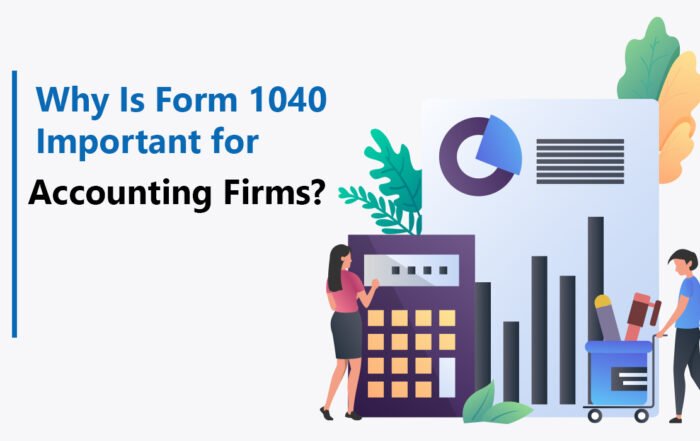In the complex world of finance, accounting stands as a vital pillar. It’s the systematic process of recording, analysing, and reporting financial transactions, ensuring businesses run smoothly and efficiently. So when people hear the word ‘accounting,’ they do not immediately think of complex specialties instead, despite the prevalence of calculations, they consider it a single branch of accounting. That is why Lints Advisors here for you, the kind of understanding of the different types of accounting can facilitate the proper and accurate decision making in the management of businesses or in the management of personal finance.
1. Financial Accounting
Financial accounting is considered as the most general field of accounting types. This sub-branch is responsible for preparation of the financial statements. Its main role is to provide the balance sheet, income statement, the statement of cash flows to the users; which include investors, creditors and other bodies. These statements provide a pointer of a company’s financial situation at a certain point in time with a view of using that information to come to a particular decision.
Key Features:
- Standardized Reporting: Conforms to GAAP or IFRS depending on the country the firm operates in or the preference of the firm.
- Historical Data: Relies solely on financial records that are history.
- External Use: Meant for the stakeholders who are not from the organisation or from within the organisation.
2. Managerial Accounting
While financial accounting is exclusively directed towards the external reporting of organisational performance, WI managerial accounting targets internal users, namely, the management of the firm. It entails the development of thorough schedules of reports and projections that will be useful in effective decision making, planning and control.
Key Features:
- Forward-Looking: Emphasises the estimates of what ought to happen in the future and the necessary financial plans.
- Detailed Reports: Gives more detail for by use in programmes in the day to day management.
- Internal Use: Designed more for the administration and overseeing of SAICA rather than for the outsiders or other interested parties.
3. Cost Accounting
Managerial accounting is a broad field of accounting and cost accounting types is a branch of it. It particularly aims at equating a company’s total cost of production through evaluation of variable costs in the course of production together with fixed costs like a lease expense in the production process.
Key Features:
- Cost Analysis: Helps in calculating the costs associated with production activities that are carried out in the organisation.
- Efficiency Improvement: Enables one to identify areas that can be made less costly and / or improved.
- Internal Focus: Originally used by the management in the business organisation in order to make effective operational decisions.
4. Tax Accounting
Tax accounting is the branch of accounting that focuses on tax issues. It includes filing of tax returns and the management of tax estimates for the future to meet the legal requirements in taxation.
Key Features:
- Regulatory Compliance: Makes sure that all the laid down laws and policies on taxation are complied with.
- Tax Planning: Assists in anticipating taxes to prevent cases of having to additional pay taxes.
- Specialised Knowledge: Deals with present taxation laws and therefore, need mastery of current tax laws and policies.
5. Forensic Accounting
Forensic accounting involves accounting, auditing, and investigative work focused on the analysis of financial statements with an aim of resolving some legal issue. Fraud examinations and Investigations, corporate disputes and Litigation support are some of the areas that forensic accountant type are employed in.
Key Features:
- Investigative: Majors in detecting fake or fraudulent financial information and reports.
- Legal Support: Helps to derive decisions in the legal contexts.
- Detail-Oriented: This is work which needs a good level of concentration as well as analytical ability.
6. Auditing
Generally, auditing involves reviewing and verifying the company’s financial reports with the aim of ascertaining the truthfulness of the records as well as the adherence to the established accounting regulations. There are internal auditors, who are employees of the company and there are independent auditors.
Key Features:
- Verification: Maintenance of the overall audited financial statement of an organisation.
- Compliance: They always monitor/check for compliance as regards regulations and standards.
- Internal and External: May be conducted by either a staff or independent auditor.
7. Fiduciary Accounting
Over another entity, fiduciary accounting types are linked to account management. This can include the management of the financial aspect of a trust, an estate or any other fiduciary relationship.
Key Features:
- Trust Management: Interacts with the ability to take on the stewardship of managing other people’s money.
- Legal Compliance: It also makes sure that the fiduciary laws and agreements are followed.
- Transparency: There is a need for better communication and for more detailed and especially for completely honest reporting to the beneficiaries.
8. Governmental Accounting
Governmental accountant type deals with the record of the financial operations of the government. This is generally true, though it follows a different guide, generally issued by the Governmental Accounting Standards Board.
Key Features:
- Public Sector Focus: Such a frame is intended for governmental organizations only.
- Different Standards: Used instead of GAAP, but reports in accordance with GASB standards.
- Budget Emphasis: More frequently concentrates on adherence to the available financial resources or presidential budget and accountability to the people.
How Lints Advisors Can Help
At Lints Advisors, we recognize that each type of accounting plays a crucial role in the financial ecosystem. Our team of experts is well-versed in all these areas, ensuring comprehensive support for our clients. Whether you need assistance with financial accounting for external reporting, managerial accounting for strategic planning, or forensic accounting for fraud investigation, Lints Advisors has you covered.
Why Choose Lints Advisors?
- Expertise: We have highly qualified and professional personnel in our team with years of experience in all the accounting disciplines.
- Tailored Solutions: Here you can get different types of accounting services, which are individual for every client.
- Commitment: We are focused on delivering accurate, reliable and timely services in accounting.
Conclusion
Accounting is not all about listing down debits and credits. It is a versatile specialization and subfields of the discipline focus on different tasks and responsibilities such as regular and material reporting, managerial and financial decisions, taxation and forensic accountancy. Thus, recognizing such types of accounting can craft meanings to the business and personal financial worlds.
In need of Accounting Services? At Lints Advisors we provide every Service you may require from Accounting. Reach us today, let us explain how you can reach your financial goals with the help of our accounting services.
Financial Sector Trends: What the 2025-26 Budget Reveals
The Union Budget 2025-26, unveiled by Finance Minister Nirmala Sitharaman, has set the stage for transformative changes in India's financial sector. The upcoming budget concentrates on developing economic expansion while making credit options more accessible [...]
Empowering Women: Financial Planning for 2025
In today's dynamic financial world, empowering women through tailored financial planning is more crucial than ever. Women often face unique financial challenges, including longer life expectancies, career breaks for caregiving, and persistent wage gaps. Addressing [...]
Why Is Form 1040 Important for Accounting Firms?
When it comes to the world of taxes, Form 1040 holds a central position. It is often referred to as the "U.S. Individual Income Tax Return" and serves as the primary document taxpayers use to [...]





